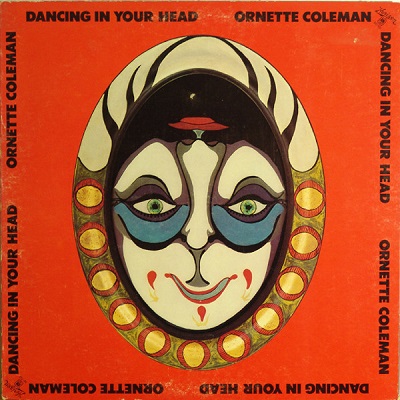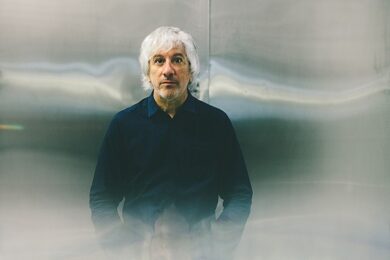7. Ornette ColemanDancing In Your Head

It’s early 70s, with the Master Musicians of Joujouka. That’s partly why I chose it, because they’re on a couple of tracks. That record is one of the earliest jazz records I found myself listening to a lot. Somebody handed it to me and I was really impressed by it. I didn’t know anything about these Joujouka guys at that point except for the fact that their name always came up in relationship to the Rolling Stones and Brian Jones. At that point I don’t think I’d even heard of that Pipes of Pan At Jajouka record that Brian Jones recorded but I started to get really interested into Dancing In Your Head.
Ornette went to Morocco with this music critic named Robert Palmer. Palmer was a really important music writer and I’d read some of his stuff, so when I saw his name on the back of that record I was even further intrigued. It was a kind of an early avenue into free jazz for me, because this record led me to Miles and to Coltrane and to Thelonious Monk and Albert Ayler and all this other stuff. I think probably at the same time I was also listening to African “world music” as they called it later, and a lot of Gamelan was really important to me.
I was looking for world music that I felt I could find stuff in, that could inform my interest in rock & roll and certainly the Gamelan music had a lot of that just because it was metallic and loud and it had these furious beats and Dancing In Your Head did too because it was really drone-y in ways that reminded me of the Velvet Underground and was also really loud.
It also tied directly with jazz music because The Master Musicians of Jajouka playing those rhaitas were circular breathing in the way the jazz players were, just going around, you never felt like the music broke for breath. They were just going around in this endless loop, which also tied it in with my interest in tape music and tape loops and things like that.
It wasn’t really until I went there and played with these guys in the 90s – we went to the village and spent a couple of days there and kind of played all night long with them – they had a cheap generator and an electric guitar – I could see that it was loud and kind of stomping in a way that related to rock & roll but it also had this circular trance-y thing where you started to lose track of time. Had it been going on for ten minutes or forty minutes or whatever it was? It had a very druggy quality with or without the drugs.
There was just something about Ornette Coleman and when I heard this record I felt like I was hearing someone who was a great force. He did all these amazing ground breaking records and it opened up the whole world of jazz for me.


